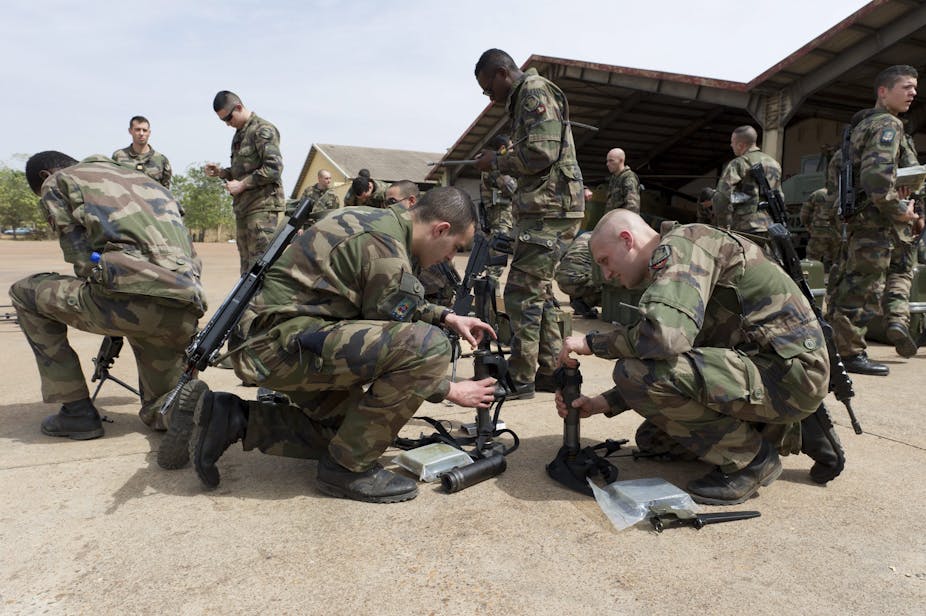The French government has announced it will triple its troop deployment to the conflict-plagued state of Mali.
On Monday, France’s ambassador to the United Nations, Gerard Araud, explained that France had received UN Security Council approval to intervene. An aerial campaign on Thursday commenced at the request of Mali’s government, targeting al Qaeda-linked rebels marching on the capital, Bamako.
Echoes of Libya
The fear from France and its allies is that Islamist group al Qaeda in the Islamic Maghreb, shortened to Aqim, poses a grave threat, through its efforts to create what would amount to a Taliban-style regime in Mali.
The Independent’s Patrick Cockburn has pointed out that this action resembles the “protective” intervention by the French against Colonel Muammar Gaddafi two years ago. For this reason, the implications of UN Resolution 2085, which charts the legal boundaries of military assistance designed to restore Mali’s government, are dangerously unclear.
UN Secretary-General Ban Ki-moon sees the move as limited and controlled. He said the intervention was only taking place to restore “Mali’s constitutional order and territorial integrity”.
Afghanistan in Africa
The political and cultural activities of the seemingly eclectic mishmash of Islamic groups in Mali have been vicious. Music has been banned in some areas, something seemingly unthinkable in the country, which has produced such world-renowned acts as Salif Keita. Islamists have also engaged in that all too familiar pattern of destroying Sufi shrines such as those in Timbuktu. There is little doubt that Mali is fast becoming another Afghan experiment in militant Islamist nation building (or sheer deconstruction).

Look for fundamentalists, and you will find them. The born-again Salafist Iyad Ag Ghaly, leader of the Islamist movement Ansar-ud-Deen, exemplifies this. Long gone is the man who used to smoke and keep company with the musicians from Tinariwen. As the director of the Festival in the Desert Manny Ansar explains, “He believes in what he’s doing. And that’s what frightens me”.
The musicians have gone underground. Last year, on August 22, the city of Gao received a governing decree banning all Western music.
Andy Morgan, writing for The Guardian, noted one striking example of this in the Malian desert town of Kidal in October last year. Seven militia men sporting AK47s were on the search of a local musician. He was not found, but the message to his sister was unmistakable:
If you speak to him, tell him that if he ever shows his face in this town again, we’ll cut off all the fingers he uses to play his guitar with.
The other side of the experiment is less the matter of Allah and more the issue of money and basic greed. Power and finance come before the establishment of caliphates for some of the vying groups. That side of the equation is neglected in the Western security debate.
The intervention, however, is not premised on cultural salvation but political order. If Mali falls to Islamism, a haven will be established though it’s bound to be confused and bloody. And what will come of that is anybody’s guess. The US support for the French is premised on the simple basis that Islamic “terrorists” are involved, plain and simple. “We share the French goal of denying terrorists a safe haven,” US State Department Official Victoria Nuland explained.
An intractable problem
Mali, to put it bluntly, is in a mess. Such messes, when they take place in former colonial bastions – notably those with strong historical ties to powers such as France – invite more than a spectator’s interest. That interest tends to come in the form of guns and material when the “natives” misbehave.
With their current resources, a conquest of Mali from either Aqim or ethnic separatist group, the National Movement for the Liberation of Azawad (MNLA) is highly unlikely. Neither group is friendly with each other, with Ansar-ud-Deen keen to muscle past the nationalist MNLA with the help of the Movement for Unity and Jihad in West Africa (Mujao).
So, we are back to the usual debates about international intervention – to curb an untested, unclear threat, with motives that are themselves historical, ill-directed and disingenuous.
We can dismiss the altruistic motive from the start, despite the icing of UN legalism. The Mali conflict, fought by its various players, is based on a bloody challenge for control, and no side, at this point, looks likely to gain ascendancy.

